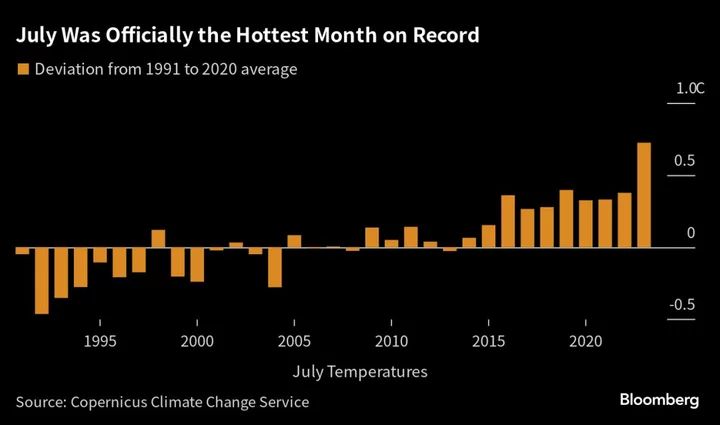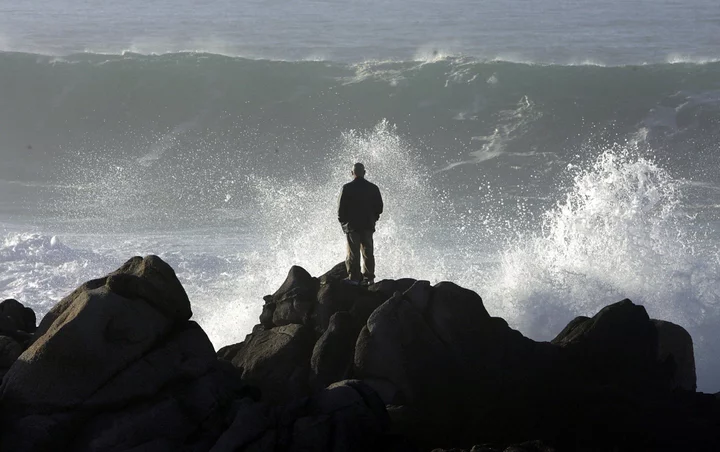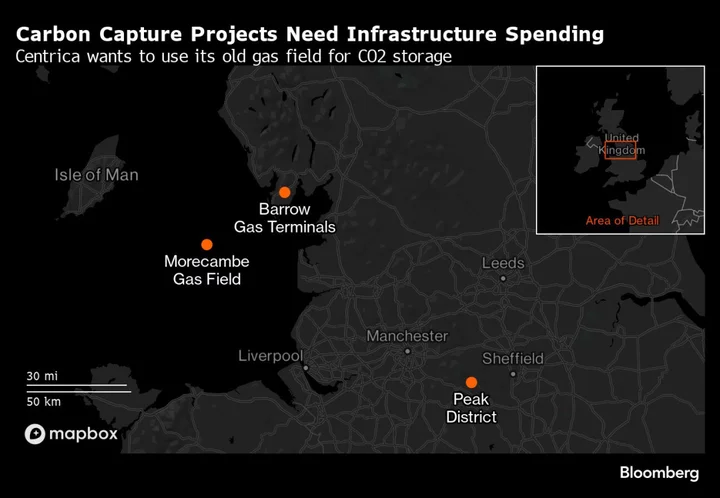More than a 1,000 firefighters are tackling a blaze in the south of Portugal, while Spain braces for one of the hottest days of the summer.
A red heat alert is in place in Braganca in Portugal, where temperatures climbed to 44.4C on Tuesday. Cooler weather in the south will help efforts to contain a wildfire in Odemira, which has burned about 10,000 hectares and destroyed a hotel. More than 1,400 people have been evacuated.
In Greece, 47 fires were brought under control in the past 24 hours, but eight regions remain on high alert as strong winds increase risks. Spain has issued a number of red weather warnings, including for Andalucia and Madrid, with highs of 44C (111F) expected.
July was officially the earth’s hottest month on record, causing the Antarctic to shrink at a record pace. Wildfires in Canada burned an area roughly the size of Iceland, while those in Greece forced thousands of tourists to flee the island of Rhodes. Scientists say the extreme weather events across the Northern Hemisphere would have been “virtually impossible” without climate change, but efforts to curb the use of fossil fuels fall well short of what’s required to address a rapidly warming planet.
While the Iberian peninsula bakes, cooler temperatures and destructive storms have battered northern Europe.
Sweden still has a red warning in place for flooding, but the brunt of Storm Hans has been felt in Norway. About 800 people were evacuated from the worst hit areas of the country, with heavy rain triggering landslides and road closures.
The worst storm in years contrasts with dry weather in the far north of Norway. That prompted an orange alert for wildfires, the second-highest risk level.
Cyclone Circe is hitting northern France, bringing 100 kilometer (62 miles) per hour winds to Saint-Malo, while gales are forecast for the German island of Sylt and other parts of the north coast.
--With assistance from Paul Tugwell and Lars Paulsson.
Author: Ellie Harmsworth, Kari Lundgren and Henrique Almeida









